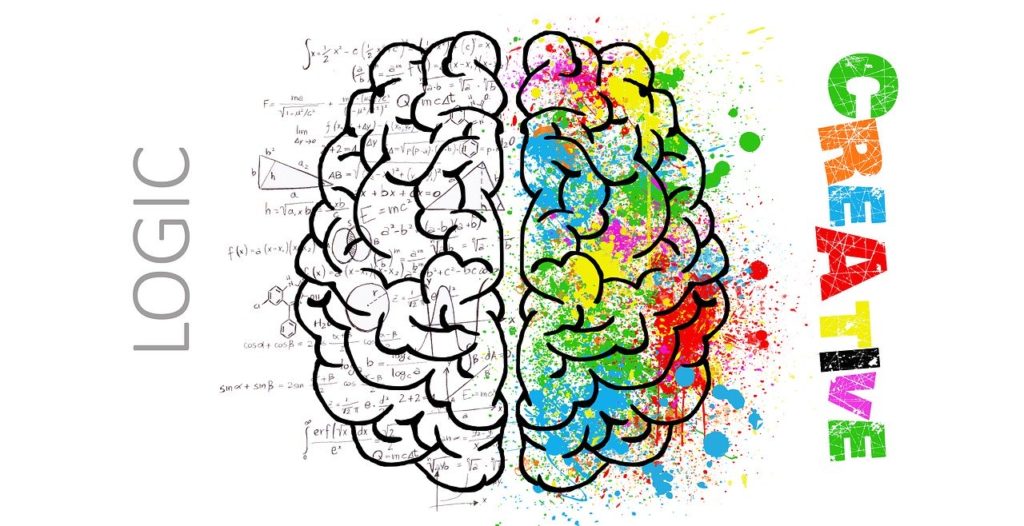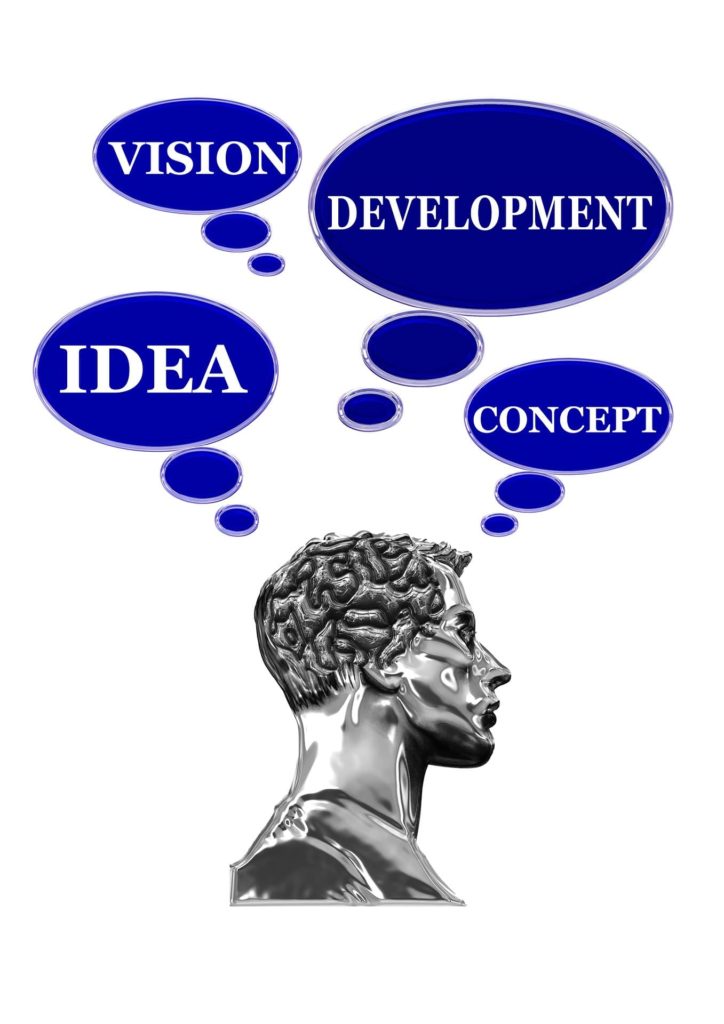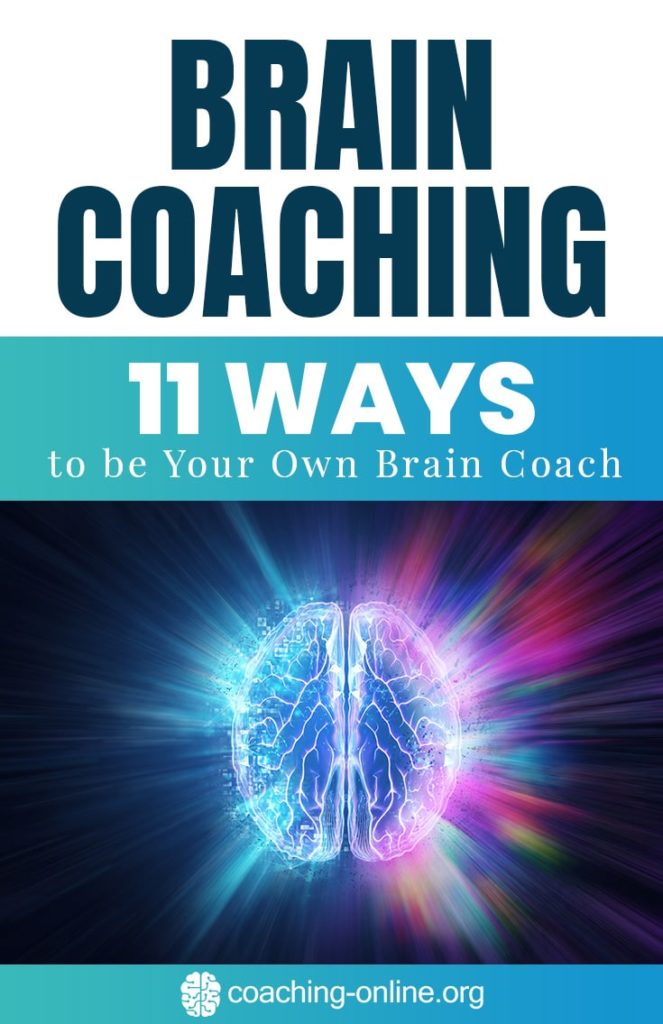Not too long ago, it was believed the brain doesn’t change. Whatever the goal, however high the performance level, or memory capacity – you had your limit.
Now, with advances in neuroscience, we are finding out it is possible to change connections in the brain.
This is called neuroplasticity and it’s a big leap forward for life coaching and anyone interested in personal development.
With brain-based coaching you can learn what it takes to be your own brain coach.
Let’s dive right into it.
What Is Brain-Based Coaching?
Brain-based coaching blends neuroscience, and the principles and practices of life coaching methods to create powerful and transformative change.
Neuroscience is the study of the human brain and nervous system.
With new findings about the brain’s plasticity or changeability, brain-based coaching has developed new training and techniques to help clients make supportive changes in their lives.

The brain’s job is to make sense of our world according to our experiences.
It does this by making and pruning back neural connections as we decide whether our experience was positive or negative.
The focus of brain-based coaching is on changing old patterns of beliefs and thoughts established in our subconscious mainly when we were very young.
Up until we’re about seven years old, our brains experience and learn about the world around us without the analytical mind as a filter.
Alpha Brain State
The brain records its impressions in what is called alpha brain state.
In this state, the analytical mind is not in the way, so our subconscious takes in and records every thought, feeling and impression without question.
As a 5 or 6-year-old have you ever gone down the basement stairs of your house because your mother asked you to get something and you sensed an eerie feeling?
The light got more and more dim as you went down and the air felt colder. You were hyper-aware of being down there without the safety of someone else in your family.
You hear a sound or see a shadow and because your analytical mind is not functioning yet to build logical reasons for those things, thoughts creep into your mind.

There might be something hiding there that wants to get you.
You quickly go to get the thing your mother wants.
You’re sure something dark is after you.
You run all the way back up, your heart pounding in your chest, you’re breathing faster and you may have even let out a scream – you’re not sure.
You begin to dread going to the basement alone.
Your brain had taken a snapshot of the event and a neural connection was made leaving you with a memory and a belief that basements are scary places.
This is now a program and the brain sees the world according to its own wiring.
After growing up, your analytical mind has been able to jump in and help you realize there’s no reason to be scared of going to the basement.
Yet that programmed belief still rests in your unconscious and basements might still give you an eerie feeling.
Different coaching styles use brain-based coaching now as one of the main principles to help clients achieve their goals.
To sort through different coaching styles, these are some that incorporate brain-based coaching.
What Is Neuro-Coaching?
Neuro coaching integrates breakthroughs in neuroplasticity with life coaching in a program clients are able to benefit from.
Detrimental thoughts create impairment, damage or reverse previous learning.
Neuro coaching recognizes that thoughts affect everything from your health, your career, your athletic performance, relationships, and so on.
Neuro coaching teaches the client that by changing the quality of their thoughts or inner self-talk, their neurochemistry (which creates a feeling in the body) changes.
In effect, neuro coaching is training the client to connect their thoughts to the feeling in their body as a signal to know whether the thought is beneficial or not.
With training through consistent practice of maintaining higher quality thoughts and inner self-talk, neuro coaching can guide the client to a new default setting in their brain.
What Is Breakthrough Coaching?
Do you like the idea of working less and producing more?
This is the basis of breakthrough coaching.
Breakthrough coaching uses training that helps increase a client’s performance results as well as personal satisfaction in their career.
Normally, results can drift, meaning, they improve slowly over a long period of time, with ups and downs along the way.
Breakthrough coaching offers a significant increase in results that can be sustained.
Basically, it takes two shifts to create this dramatic change.
- The first step it requires is a change in a person’s thinking.
- Secondly, it requires a change in action. This change can only happen by shifting the program of the way clients see the world then they will feel the impulse for change.
What Is Brain Coaching?
Through training, brain coaches use the principles of brain-based coaching to help clients think for themselves rather than fall back on the default program that has set the brain’s connections from events in the past.
Brain coaching builds mental tools so the client can gain the clearest and most reasonable response to their life experience in order to reach goals for their career, health, love, relationships, etc.
What Does A Brain Coach Do?
Brain coaches have the training to help clients see where they’ve obscured their thoughts, beliefs, and behaviors.
Brain coaching professionals have gained methods to encourage clients to form new thoughts, new beliefs, and clearer insights.
A Brain coach offers positive support so clients can achieve their goals and modify their thinking.
By learning to use the body’s senses clients will be able to integrate beneficial thought patterns.
This way they’ll make new neural connections and enhance their brain’s plasticity, or changeability.
11 Ways You Can Be Your Own Brain Coach
Here are some ways you can begin coaching yourself.
1. Unplug
Unplugging from outside stimulation and quieting your mind puts you in the space where you can be aware of what’s going on in there. Take 5 minutes and just notice the quality of the thoughts going through your mind.
This is one of the most powerful things you can do for yourself.
Take note of what you find in there.
2. Meditate
When you think of meditation, stop thinking about monks. Meditation is a critical skill for getting to know yourself and rewiring your brain.
Meditation literally means to become aware. So when you sit down to meditate, don’t expect bliss or alternate dimensions to come to you immediately.
The first things that come to you will be an awareness of your thoughts and possibly an uncomfortable feeling in your body.
Notice the thoughts and feelings in your body without judging or following the story.
Start small, training yourself with just a few minutes each day and work up to going longer.
3. Ask Yourself if it’s True
Just because you have a thought doesn’t mean it’s true. Be open to the idea that a thought or belief you’ve had for a while could be false or limiting you.
Ask yourself if you can absolutely know it’s true. Look for evidence of whether it’s true or false.
Then determine whether it’s a beneficial thought for you or it’s limiting you.
For example: Did your boss pass you up for that promotion because he doesn’t like you or because someone else smeared you?
Could it more likely be the decision was based in the best interest of the company?
After stepping back and looking at the evidence, in most cases it would be the latter.
4. Reframe the Negative
Once you’ve become aware of the quality of your thinking and you’ve decided which thoughts are false, it’s time to reframe them.
For example: You didn’t get the promotion and you noticed the thought, “Everyone’s against me” or “I’m such an idiot!”. Then you’ve found that it’s not true that everyone’s against you.
Now, decide how you could change this thinking to be more true. Maybe, “Everyone’s not against me” and find evidence where that is true.
Maybe even, “Everyone else doesn’t matter. I know I’ll get the role that’s best suited for me at the right time.”
Feel out how true the statement is for you.
With training, you’ll soon put it into practice as you go about your day.
5. Find the Good In Any Given Situation
This is a world of opposites – up/down, under/over, good/bad – therefore, in any situation, there is some component of each polarity.
When you see only the bad or negative and you then feel bad it’s just an indicator you could be off track.
Turn your thoughts to an aspect of the event or situation that’s more positive.
For example: Your mother-in-law just moved in because her health is failing and you feel she complains constantly.
Rather than focusing on dreading coming home to that and wishing she wasn’t there, maybe you could feel grateful you have a safe haven to offer or another reason to feel love for your spouse as you witness them taking care of her.
Any change can take some training, but you’ll find it’s worth it.

6. Focus on What You Want
Stop multitasking and focus your mind on the goal you want to accomplish now. When your focus is scattered, your results will be scattered too.
Set a clear list of things to accomplish and put all your attention on one thing at a time.
Your performance on each task will be exponentially better and you’ll reach your objectives sooner.
Coaching yourself takes time and patience.
7. Schedule Tasks into Segments
Begin with your end goal in mind and work your way backward to figure out the steps it’ll take to achieve your objectives.
Write them down step by step and schedule your time with each task until it’s finished. Only then move on to the next.
8. The Language You Use
The words we use carry their own vibration. What you say matters.
Consider changing words like: I might, I may (wishy-washy and non-committal), or I should, I need to, I have to (necessity or fear-based), or I want, I wish (lack or not having).
Training yourself to change them to more empowering and actionable words like: I can, I am, I will, or I desire, even when you’re just thinking can make subtle shifts.
Words you use impact your degree of motivation and effectiveness.
9. Validate Other Perspectives
Make it a point to practice listening to other people’s perspectives on things.
For example: Imagine you and several other people standing around a circle looking at an object in the center. Everyone has a different and valid perspective of the object.
Yours will be slightly different from the person beside you and vastly different from the person opposite you. Each one is different and each one is equally true.
When you’re faced with an opposing perspective, it’s a good time to take a step back in your mind and detach a little bit from having to convince people that your perspective is the right one.
Coaching yourself this way can improve all your relationships.
10. Define Your Values
We rarely spend time thinking about our values.
Find out what’s really important to you now. What deeply motivates you or gives you a meaningful purpose?
Some could be: time and space to yourself, honesty, integrity, health, self-respect, kindness to the planet. Whatever yours are, they’re uniquely yours.
Write down as many as you can think of, then put them in order of importance. This is only about you. No one else needs to see this.
The better you know yourself, the more secure you’ll feel to move forward and achieve your goals.
11. Practice Gratitude
Feeling gratitude for the smallest things can be life-changing.
This directly causes the neurochemistry of the brain to release feel-good hormones to your body. Leaving you feeling safe, loving, and peaceful.
Maybe it’s difficult at first to generate gratitude if you’ve never seen anything to be grateful for. So start small.
For example: Start with waking up in the morning. You have another chance to make a change. Feel gratitude. Move on to something else. You wake up warm in a comfortable bed. Feel gratitude.
Once gratitude opens your heart, it becomes easier each time.
You now know how to begin coaching yourself and training your brain to create new connections.
Even if you choose just one of these ways to be your own brain coach today, you’ll begin making noticeable shifts in your life.
Related Posts
Mind Coaching – 7 Ways to be Your Own Mind Coach
Online Life Coaching – A Complete Guide



